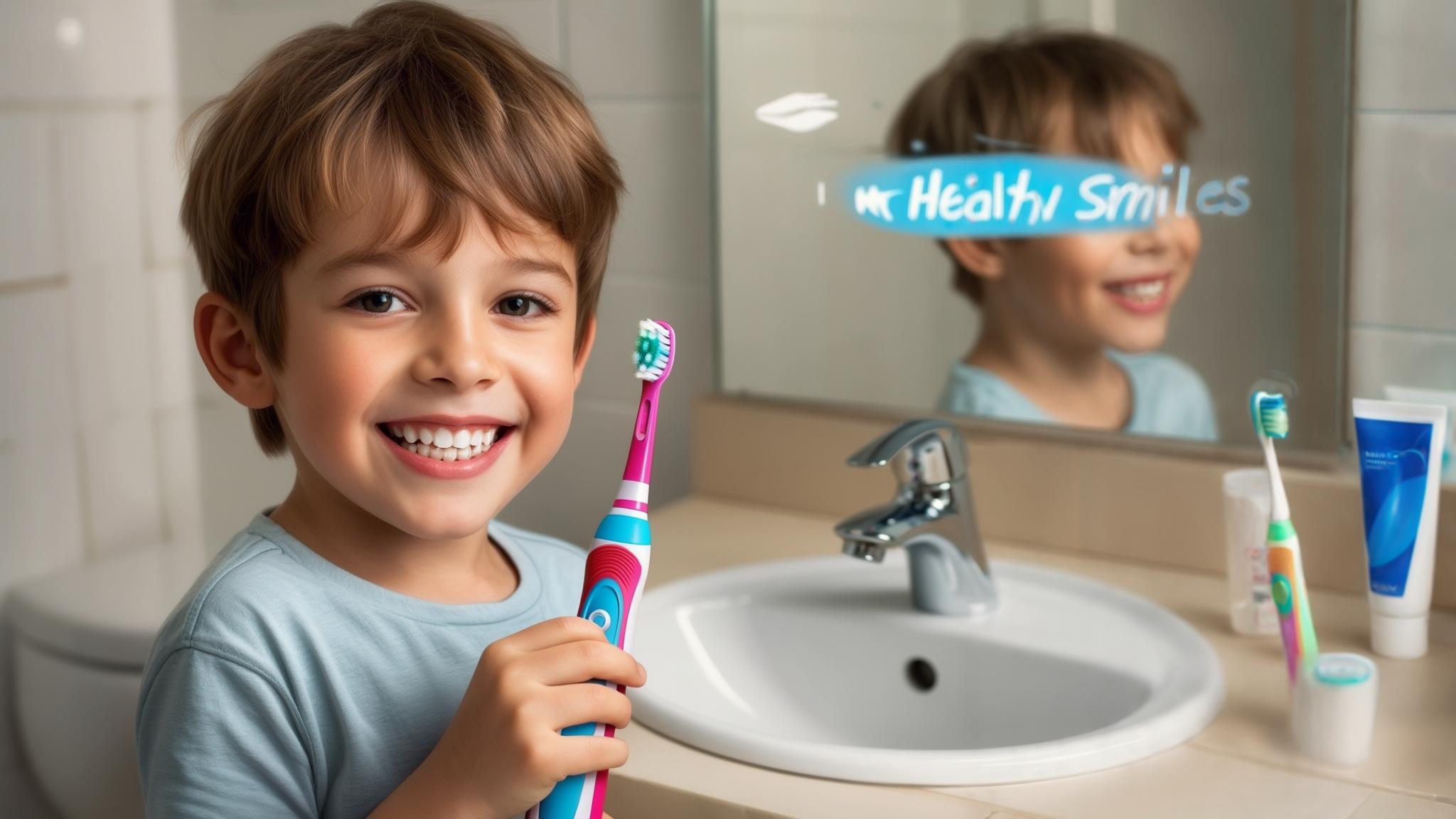Understanding Children's Dental Needs
When it comes to children's dental health, it's crucial to recognize the unique challenges they face. Cavities, for instance, are the most common chronic disease in children, often resulting from sugary diets and inadequate brushing. Gum disease can also occur if plaque isn't removed effectively, leading to inflammation and discomfort. Additionally, orthodontic concerns may arise as children's teeth develop and shift, requiring careful monitoring and intervention.
Establishing proper oral hygiene habits from a young age is vital. Teaching children to brush effectively helps prevent these common issues and sets the foundation for a lifetime of healthy smiles. Good habits formed early can lead to better dental health outcomes as they grow.
Benefits of Electric Toothbrushes for Children
Enhanced Cleaning Capabilities
Electric toothbrushes offer enhanced cleaning capabilities compared to manual brushes. Studies show they are more effective at removing plaque and reducing gingivitis. The oscillating or vibrating bristles can reach difficult areas, ensuring a thorough clean that might be hard for little hands to achieve manually.
Encouragement of Proper Brushing Technique
Many electric toothbrushes come with built-in timers and pressure sensors. These features help ensure children brush for the recommended two minutes without applying too much pressure, which can damage gums and enamel. Some toothbrushes even provide feedback, guiding kids to improve their brushing habits over time.
Increased Motivation for Children to Brush
Electric toothbrushes often come in fun designs and colors, featuring popular cartoon characters or themes that make brushing more enjoyable. Some models incorporate gamification elements, like earning points for brushing, which can motivate children to maintain regular brushing routines.
Potential for Better Long-Term Dental Health Outcomes
By encouraging consistent and effective brushing, electric toothbrushes can lead to reduced plaque and gingivitis. More importantly, they help establish lifelong oral hygiene habits, contributing to healthier teeth and gums as children grow.
Considerations When Choosing Electric Toothbrushes for Kids
Age Appropriateness
When selecting an electric toothbrush, consider the child's age. Manufacturers often provide age recommendations to ensure the toothbrush is suitable for a child's developmental stage. The size and design should be comfortable for small hands to grip and maneuver.
Cost Factors
Electric toothbrushes can be more expensive than manual ones. However, they can be seen as a long-term investment in a child's dental health. It's important to weigh the initial cost against the potential savings from avoiding dental treatments in the future.
Supervision and Parental Involvement
Children should be supervised while brushing to ensure they use the toothbrush correctly. Parents can teach their children how to operate the brush and monitor their technique. This involvement is crucial to prevent issues like over-brushing or relying too heavily on the technology.
Potential Drawbacks
While electric toothbrushes offer many benefits, there are potential drawbacks. Children might become dependent on technology for brushing, and improper use can lead to issues like over-brushing, which may damage gums or enamel.
Expert Opinions and Research Findings
Insights from Pediatric Dentists
Pediatric dentists generally support the use of electric toothbrushes for children, citing their effectiveness in improving oral hygiene. They emphasize the importance of choosing age-appropriate models and ensuring proper use.
Recent Studies
Recent studies indicate that children using electric toothbrushes show improved oral health outcomes compared to those using manual brushes. These findings support the notion that electric toothbrushes can play a significant role in enhancing children's dental hygiene.
Recommendations from Dental Associations
Many dental associations recommend electric toothbrushes as a valuable tool for maintaining children's oral health, provided they are used correctly and under supervision.
Conclusion
In summary, electric toothbrushes offer numerous benefits for children's dental health, including enhanced cleaning, encouragement of proper technique, and increased motivation to brush. However, it's important to consider factors like age appropriateness, cost, and the need for supervision. Ultimately, electric toothbrushes can play a supportive role in promoting lifelong oral hygiene habits.
Parents are encouraged to consult with dental professionals to choose the best option for their child's needs and to receive personalized advice.

